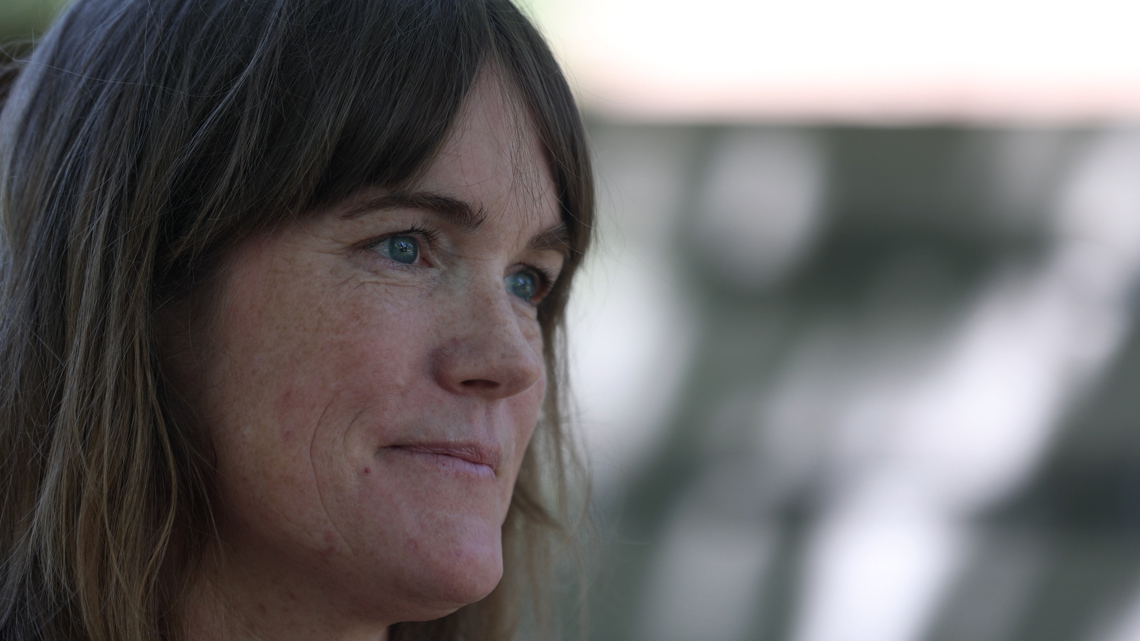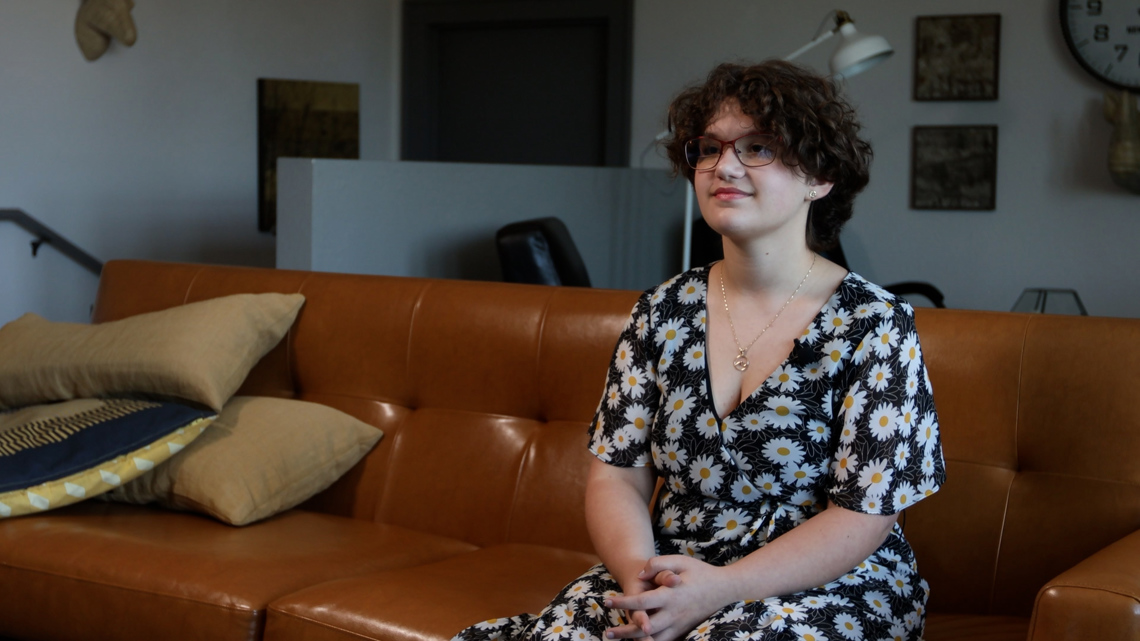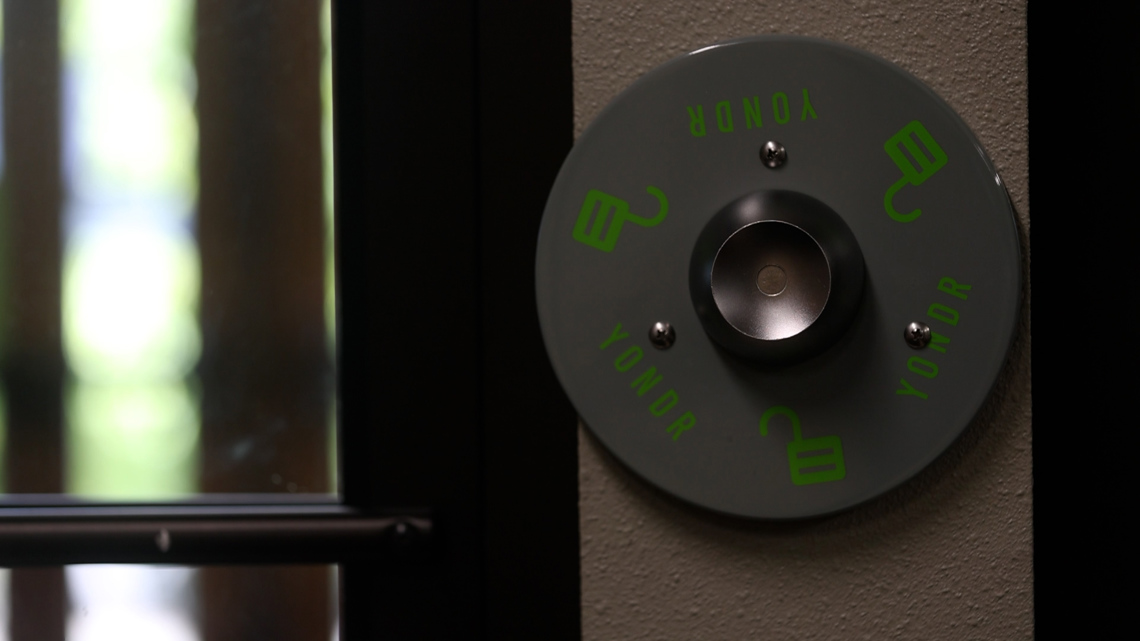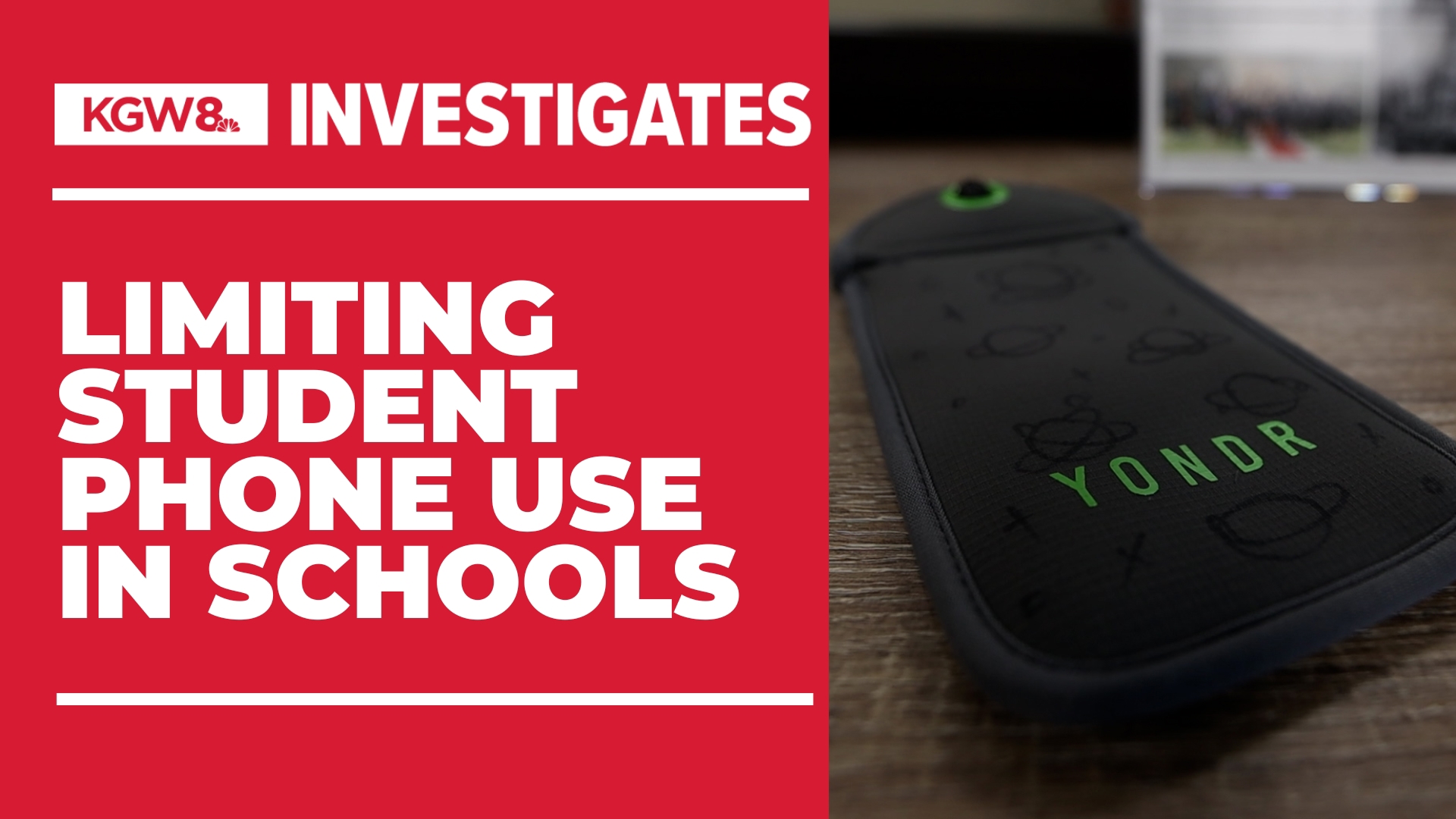PORTLAND, Ore. — Portland Public Schools leaders are considering a district-wide ban on student cell phone use, but first PPS will watch as two of its schools try out Yondr phone pouches — the latest anti-phone method gaining popularity in school districts across the state.
Starting this fall, Grant High School and Beaumont Middle School will become the first PPS schools to debut the Yondr pouches. Grant H.S. paid $60,825 for more than 2,500 pouches, using money from the principal's discretionary fund. The pouches cost $30 each and Grant received a $20,625 discount as a "flagship school" in Portland, according to a PPS purchasing order.
The pouches are lockable phone cases, and students will be required to seal their phones inside during the school day. They lock and unlock using a mechanical interface at stations called "bases," typically placed near school entrances or the school office.
Mary Kate Houghton, a teacher at Alliance High School in Portland, said teachers have become overpowered in a fight against social media and are desperate for help in restricting phone use in the classroom.
"They are working really hard to keep our students engaged in an algorithm that we can’t fight," Houghton said. "I will never be more interesting than TikTok."


Houghton said she is frustrated that only Grant and Beaumont will be using Yondr pouches during the upcoming school year, because she and other teachers at Alliance previously begged the district for the pouches, only to be shut down.
"I just got told it wasn't happening, which was crushing," Houghton said.
Grant and Beaumont likely sidestepped the district's approval process by paying for the pouches themselves.
Rebecca Rothery, an English teacher at Alliance entering her 25th year with PPS, said teachers started asking for Yondr pouches in January of 2023.
Rothery said they were initially told the PPS legal department would not sign off on the pouches, and later that Alliance would need to try other phone-control methods and engage all stakeholders before getting pouches — but those other methods can cause friction.
"We've tried phone buckets, boxes, charging stations," Rothery said. "When you put a phone policy in the hands of a teacher, you're setting up an antagonistic relationship with students...[Yondr would] take the battle away from teachers."
Alliance is a multiple pathways school, helping students who are credit-deficient or in need of a new school environment.
Houghton and Rothery said they're envious because a peer alternative pathways school — Mt. Scott Learning Center — has used the pouches since 2021.
Mt. Scott is affiliated with PPS as a community-based organization, while Alliance is more directly managed by the district.


Helena Toledano, a junior at Mt. Scott, said she quickly adapted to the phone pouches.
"I was a little weirded out by it [at first], but I think it only took me a week of adjusting and now I absolutely adore it," Toledano said. "Kids my age are usually tapped in something so seeing their actual personalities without screens was wonderful."
Mari Kauffman, a graduate of Mt. Scott and now a student at Willamette University, admitted that the Yondr pouches were unpopular, even if she believed they created a better learning environment.
"A lot of kids hated it, despised it," she said. "I was one of them that loved it."
Dara Christy, director of academics at Mt. Scott, said the Yondr pouches had an instant impact on learning and now teachers and administers from many different school systems frequently visit to see how the system works.
"Just immediately people were able to connect in a more authentic way, both academically and socially," Christy said.
However, there's also plenty of pushback.
A student-backed petition against Grant High's Yondr experiment has more than 1,000 signatures, with many saying the system will be ineffective at a significant cost.


Unlike the North Clackamas School Board, which recently voted unanimously to purchase $300,000 worth of Yondr pouches for all of its middle and high schools, the Portland Public School Board is taking a more cautious approach.
"We want to get our data from the schools that have that real-time experience," said board member Julia Brim-Edwards in a board meeting, referencing Grant and Beaumont's early adoption of the pouches.
Brim-Edwards presented a draft student cell phone use policy to the board this summer.
It would require students to keep their phones off during most school hours, prohibit taking photos or videos at school, and require PPS employees to confiscate and store phones when students are in violation of policy.
Brim-Edwards said in the board meeting that there would be many future public meetings to discuss and potentially adjust the policy, and it wouldn't be in place by the start of the 24-25 school year.
Houghton told KGW that teachers need help now.
"I can teach with no heat, I can teach with radon coming up through the classroom or ceiling tiles falling. I can't fight phones, like that is above me," she said. "The longer they have access to them, or we allow them to do that, we are causing more damage to these kids."
Rothery, who said she teaches some of the most vulnerable students in the district who need to re-engage in order to catch up and graduate, said she'd love to try Yondr pouches to see if something new could work – and at least the pouch system lets students maintain autonomy of their phones.
"If it isn't the panacea we hope it is, what's the harm in piloting it," she said. "The U.S. Surgeon General has said how dangerous [phones are to kids.] What's the harm in trying?”
Like North Clackamas, the Seaside School District will also start using Yondr pouches for its middle and high school students this fall.
Seaside High School Principal Jeff Roberts said he announced the decision in April to make sure no one was surprised by the upcoming change, and he liked how the pouch system doesn't make his staff liable for confiscating or storing kids' phones.
Roberts said his teachers are all in, his students generally don't love the idea but most understand it, and he hopes that the pouches will help "get our kids back" and engaged in the classroom.

